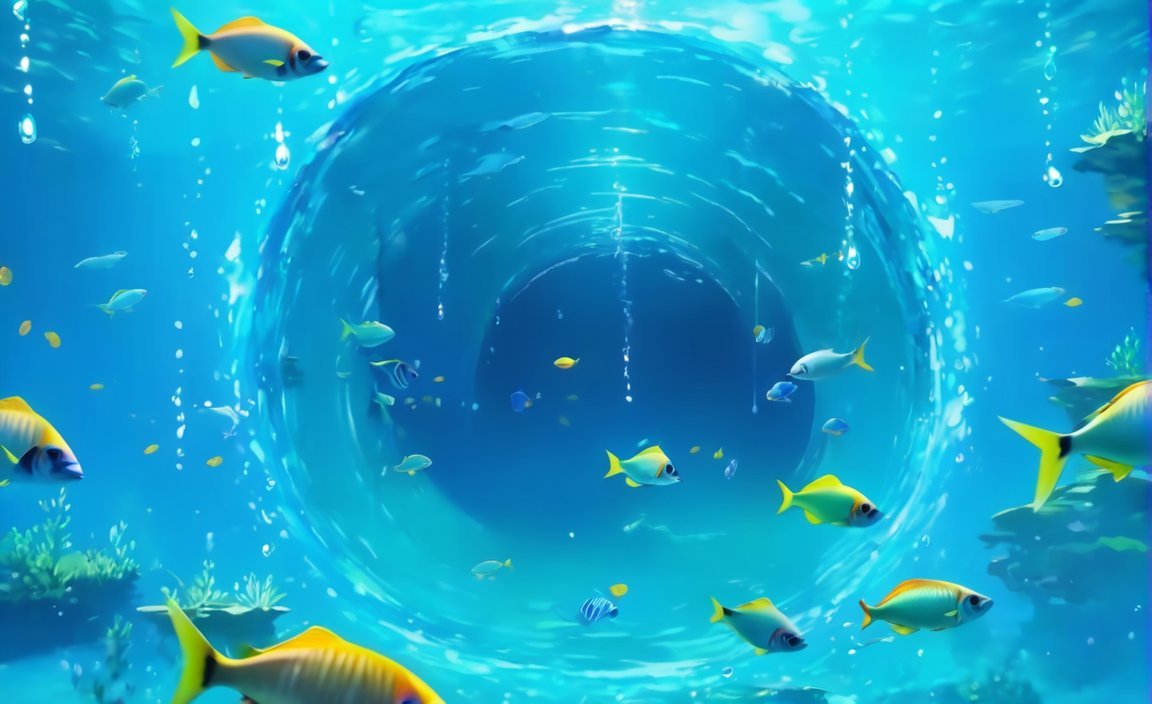Water is an essential resource that sustains life on Earth. Understanding its importance from an early age is crucial, especially for class 5 students. In this article, titled “The Crucial Role of Water: 10 Points for Class 5 on its Importance,” we will explore ten key reasons why water is vital for our well-being and the health of our planet. By delving into these essential points, we hope to inspire young minds to value and preserve this precious resource. Let’s dive in!
Key Takeaways:
- Water is essential for the survival of all living beings.
- It serves as a medium for transporting vitamins and minerals in organisms.
- Water plays a vital role in biological processes like digestion and respiration.
- More than 71% of the Earth’s surface is made up of water.
- Water is obtained from various sources like rivers, lakes, oceans, and streams.
- It is used for domestic purposes, agriculture, sanitation, and industrial processes.
- Water helps maintain the Earth’s climate and the water cycle.
- Conserving water is important for its availability in the future.
- Sustainable water management practices like rainwater harvesting and water recycling can help preserve water resources.
- Responsible water consumption and reducing wastage are essential for a sustainable future.
10 Points on Importance of Water for Class 5

Water is a fascinating and vital resource that plays a crucial role in our lives. It is essential for the survival of all living organisms, including humans, animals, and plants. In this article, we will explore the importance of water through 10 key points. So, let’s dive in!
Point 1: Water – The Elixir of Life
Water is often called the elixir of life because it is essential for the existence of all living beings on Earth. Just like how we need food to fuel our bodies, we need water to survive and thrive. Without water, life as we know it would cease to exist.
Point 2: Water’s Role in Our Body
Did you know that our bodies are made up of about 60% water? Water plays a vital role in various biological processes within our bodies. It helps in digestion, allowing our stomachs to break down food and absorb nutrients. It also aids in respiration, enabling our lungs to take in oxygen and remove carbon dioxide. Additionally, water helps circulate important vitamins and minerals throughout our bodies.
Point 3: Water Covers Most of Our Planet
Water covers more than 71% of the Earth’s surface. It can be found in different sources such as rivers, lakes, oceans, and streams. These sources are not only beautiful to look at, but they also provide habitats for countless plants and animals.
Point 4: Water’s Many Uses
Water is used for a wide range of purposes. We rely on it for our daily activities, such as drinking, cooking, and bathing. It is also crucial for agricultural practices, as it helps irrigate crops and support plant growth. Furthermore, industries use water for various processes, including manufacturing and cooling. Water plays a significant role in sanitation, ensuring cleanliness and preventing the spread of diseases.
Point 5: Water and the Water Cycle
Water is part of a never-ending cycle called the water cycle. It starts with evaporation, where water turns into vapor and rises into the atmosphere. Condensation then takes place, as the vapor cools and turns back into liquid, forming clouds. Next comes precipitation, where water falls from the clouds as rain, snow, or hail. Finally, the water either returns to bodies of water or seeps into the ground, replenishing our water sources.
Point 6: The Need to Conserve Water
Water is a finite resource, which means it is limited in supply. It is essential to conserve water to ensure its availability for future generations. We can do this by reducing water wastage, fixing leaks, and using water-saving devices. Additionally, practices like rainwater harvesting and water recycling can help conserve water resources.
Point 7: Water’s Role in Climate Control
Water plays a significant role in maintaining the Earth’s climate. Oceans, in particular, absorb heat from the sun and distribute it across the globe. This redistribution of heat helps regulate temperature and climate patterns. Without water, our planet would experience extreme weather conditions, making it inhospitable for life.
Point 8: The Beauty of Water
Water is not only important for its practical uses but also for its beauty. Think about the serene lakes, majestic waterfalls, or the rhythmic waves crashing on the shore. Water has a calming effect on our minds and can inspire awe and wonder about the world we live in.
Point 9: The Power of Water
Water is powerful. It has the ability to shape the Earth’s surface through erosion. Over time, flowing water can carve deep canyons, shape magnificent landscapes, and create stunning features like waterfalls. It is also harnessed to generate hydroelectric power, a clean and renewable source of energy.
Point 10: Water as a Symbol of Purity
Water is often considered a symbol of purity and cleanliness. It is commonly used in religious ceremonies and rituals to represent purification and renewal. Whether it’s a baptism, a traditional cleansing ritual, or simply washing away dirt and grime, water has a special significance in many cultures.
In conclusion, water is an indispensable resource that affects every aspect of our lives. It is vital for our survival, supports various biological processes, covers most of our planet, and has numerous uses. By understanding the importance of water and conserving it, we can ensure a sustainable future for ourselves and future generations. So, let’s value and cherish this precious gift called water!
References:
– BYJU’S. (2018). Importance of Water – List of Important Uses of Water + Video. Retrieved from byjus.com/chemistry/importance-of-water
– TeachingBanyan.com. (n.d.). 10 Lines on Water for Children and Students of Class 1, 2, 3, 4, 5, 6. Retrieved from teachingbanyan.com/10-lines/10-lines-on-water
Water is an essential resource for life, and understanding the importance of water is crucial. Discover the 10 points on the significance of water here.
Water conservation plays a vital role in preserving this precious resource. Learn about the 10 points on the importance of water conservation here.
India is home to diverse wildlife, including some rare and unique animals. Explore the list of 10 rare animals in India here.
Water is a Key Component of the Human Body: The Importance of Water for Class 5 Students
Water is not just a simple drink to quench our thirst; it is a vital component of our bodies. In fact, it is crucial for our overall health. Imagine a world without water – it would be quite impossible for us to survive. In this article, we will explore the significance of water in the human body and understand why it is so important for our well-being.
Key Takeaways:
- Water is essential for regulating body temperature, moisturizing tissues, and protecting organs and tissues.
- It plays a crucial role in carrying nutrients and oxygen to cells and lubricating joints.
- Adequate hydration is important for overall health and bodily functions.
- The human body is composed mostly of water, with different organs and tissues containing varying percentages.
- Drinking enough water each day is necessary to maintain proper bodily functions.
Water is like the unsung hero inside our bodies. It quietly goes about its tasks, ensuring that everything runs smoothly. One of the most important roles of water is to regulate our body temperature. Just like how we sweat on a hot day, water helps us cool down by evaporating from our skin. It also moisturizes the tissues in our eyes, nose, and mouth, keeping them hydrated.
Did you know that water acts as a shield for our organs? It protects delicate organs and tissues, preventing them from getting damaged. Water acts as a cushion, absorbing shocks and keeping our organs safe.
Apart from protection, water also carries essential nutrients and oxygen to our cells. Just like a delivery person, it transports these vital substances to where they are needed the most. Additionally, water lubricates our joints, making them function smoothly and preventing discomfort.
Our body relies on the kidneys and liver to flush out waste products, and water plays a crucial role in this process. It helps lessen the burden on these vital organs by effectively removing waste from our body.
Now, let’s delve into the fascinating composition of the human body. Would you believe that our brains and hearts are made up of a whopping 73% water? Even our lungs contain about 83% water. Water is present in our skin (64%), muscles and kidneys (79%), and is even found in our bones (31%). This shows just how integral water is to our very existence.
To ensure our bodies function optimally, it is essential to drink an adequate amount of water each day. Staying hydrated is not only important for quenching our thirst but also for maintaining the proper functioning of our major bodily systems.
In conclusion, water is not just a simple liquid. It is a key component of the human body and is crucial for our overall health. It regulates body temperature, moisturizes tissues, protects organs and tissues, carries nutrients and oxygen, and lubricates joints. Our bodies depend on water to function and survive. So, let’s make sure we drink enough water each day to keep our bodies happy and healthy!
References:
– Mayo Clinic Health System – Water: Essential for your body
– US Geological Survey – The Water in You: Water and the Human Body
Water Supports Various Human Activities and Industries

Water is not just a simple liquid that we drink and use for daily activities. It has a much bigger role in supporting various human activities and industries. Let’s dive into the importance of water and how it impacts our lives!
Key Takeaways:
- Water is essential for the survival of all living organisms, including humans, animals, and plants.
- Proper hydration is crucial for our overall health and well-being.
- Conserving water is important for environmental sustainability.
- Water plays a significant role in agriculture, industry, and energy production.
- Access to clean and safe drinking water is a basic human right.
- Water is vital for maintaining biodiversity and preserving ecosystems.
- Climate change affects water accessibility, leading to droughts and floods.
- Water is essential for poverty alleviation and economic growth.
- Addressing water scarcity and ensuring equitable access to water resources is crucial.
- Proactive individual and collective action is needed to combat the water crisis.
Water plays a vital role in our everyday lives, supporting a wide range of human activities and industries. Let’s explore some key areas where water’s importance shines:
1. Agriculture:
Water is the lifeblood of agriculture. It is essential for irrigation, allowing crops to grow and thrive. Without sufficient water, agriculture would not be possible, leading to food scarcity and hunger. Farmers rely on water to cultivate their fields, ensuring a steady supply of fresh produce for our consumption.
2. Industry:
Did you know that many industries depend heavily on water for their operations? Water is used in manufacturing processes, cooling systems, and power generation. Industries such as power plants, refineries, and factories require a substantial amount of water to carry out their activities efficiently. Without water, these industries would struggle to function and contribute to our economy.
3. Energy Production:
Water supports energy production through hydropower generation. Large dams and reservoirs harness the power of flowing water to generate electricity. Hydropower is a clean and renewable energy source that plays a crucial role in reducing our reliance on fossil fuels. It provides a sustainable solution for meeting our energy needs while minimizing the impact on the environment.
4. Domestic Use:
Water is indispensable for our daily activities such as cooking, cleaning, and personal hygiene. We rely on clean drinking water to stay hydrated and maintain our health. Without access to safe and clean water, we would be at risk of various waterborne diseases. Water also plays a vital role in sanitation, ensuring proper hygiene and preventing the spread of illnesses.
5. Environmental Considerations:
Water is not just important for human activities; it also supports biodiversity and preserves ecosystems. Aquatic habitats provide a home for countless species of plants and animals. Water bodies like oceans, rivers, and lakes support diverse ecosystems and contribute to the overall health of our planet. Proper water management and conservation efforts are crucial to protect these delicate ecosystems for future generations.
6. Environmental Sustainability:
Conserving water is essential for the long-term sustainability of our environment. By using water efficiently and reducing wastage, we can contribute to the preservation of this precious resource. Sustainable water management practices can help mitigate the impacts of climate change, alleviate water scarcity, and ensure equitable access to water resources.
7. Collective Responsibility:
Addressing the water crisis requires collective responsibility. Governments, communities, and businesses must work together to conserve water and ensure its sustainable use. Individuals can make a difference by adopting water-saving habits in their daily lives, such as turning off faucets when not in use, fixing leaky pipes, and using water-efficient appliances. Small actions can collectively have a significant impact on preserving water for future generations.
In conclusion, water supports various human activities and industries, playing a crucial role in our lives. From agriculture to industry, energy production to domestic use, water’s significance cannot be overstated. Conserving water, ensuring access to clean and safe drinking water, and addressing water scarcity are essential steps towards a sustainable future. Let’s value and protect this precious resource for the well-being of our planet and future generations.
Sources:
1. The Value of Water and Its Essential Role in Supporting
2. The Importance of Water Sustainability and Our Future – Routledge
The Crucial Role of Water: 10 Points for Class 5 on its Importance
Water conservation is important to ensure its availability for future generations. Understanding the significance of water is essential for class 5 students to appreciate its role in our lives and the importance of conserving it. Let’s explore the crucial role of water through the following key points:
Water Sustains Life: Water is essential for the survival of all living organisms, including humans, animals, and plants. It plays a vital role in maintaining bodily functions and supporting various biological processes.
Environmental Balance: Water sustains biodiversity and helps preserve ecosystems. By practicing sustainable water management, we can protect natural lifecycles and maintain the balance and health of our planet.
Addressing Water Scarcity: Water shortages and droughts have severe impacts on communities and ecosystems. Conserving water and managing it efficiently can help mitigate the effects of water scarcity and ensure an adequate supply for present and future generations.
Energy Conservation: Water management facilities consume a significant amount of energy. By conserving water, we can reduce the energy required for water-related processes, contributing to environmental sustainability.
Water and Public Health: Access to clean and safe water is essential for maintaining proper hygiene and preventing waterborne diseases. Conserving water resources ensures an adequate and clean water supply, safeguarding public health and well-being.
Preserving Water Sources: Conserving water helps protect and preserve our water sources, such as rivers, lakes, and groundwater reservoirs. This ensures their sustainability and availability for future use.
Promoting Sustainable Agriculture: Water is crucial for agriculture and food production. By practicing efficient irrigation methods, farmers can conserve water and promote sustainable agricultural practices.
Climate Control: Water plays a significant role in regulating climate patterns and temperature control. Understanding the water cycle and its connection to climate change can help students appreciate the importance of conserving water.
Reducing Water Pollution: Conserving water involves preventing pollution and treating wastewater properly. By reducing water pollution, we can protect aquatic life, preserve ecosystems, and ensure the availability of clean water resources.
Global Responsibility: Everyone has a role to play in conserving water and ensuring its availability for future generations. Through individual actions, community initiatives, and government policies, we can contribute to a more sustainable future with ample freshwater resources.
Key Takeaways:
- Water is crucial for the survival of all living organisms and supports various biological processes.
- Sustainable water management helps preserve biodiversity and maintain the balance of ecosystems.
- Conserving water mitigates the impacts of water scarcity and protects future generations’ access to clean water.
- Water conservation reduces energy consumption and promotes environmental sustainability.
- Access to clean water is essential for public health and well-being.
- Conserving water resources preserves their sustainability and availability.
- Efficient irrigation methods contribute to sustainable agriculture.
- Water plays a role in regulating climate patterns and temperature control.
- Preventing water pollution protects aquatic life and ensures clean water resources.
- Everyone has a responsibility to conserve water and ensure its availability for future generations.
Sources:
- United Nations: Water and Sustainable Development
- The Importance of Water Sustainability and Our Future – Routledge
FAQ
Q1: Why is water important for class 5 students?
A1: Water is important for class 5 students because it is essential for the survival of all living organisms, including humans, animals, and plants. It plays a crucial role in sustaining life on Earth and is involved in various biological processes.
Q2: What are some key points about the importance of water that class 5 students should know?
A2: Here are some key points about the importance of water:
1. Water is essential for the survival of living beings.
2. It serves as the medium for transporting vitamins and minerals in organisms.
3. Water plays a vital role in biological processes like digestion and respiration.
4. It comprises more than 71% of the Earth’s surface.
5. Water is derived from various sources like rivers, lakes, oceans, and streams.
6. It is used for domestic purposes, agriculture, sanitation, and industrial processes.
7. Water maintains the Earth’s climate and the water cycle.
Q3: How can class 5 students help in conserving water?
A3: Class 5 students can help in conserving water by:
1. Turning off taps tightly to avoid any leaks.
2. Using water responsibly, such as not keeping taps running unnecessarily.
3. Collecting rainwater for household plants and gardens.
4. Reusing water whenever possible, like using leftover water for watering plants.
5. Spreading awareness about the importance of water conservation in their communities.
Q4: Why is water sustainability important?
A4: Water sustainability is important because it ensures the availability of clean water for present and future generations. It helps in preserving biodiversity, addressing drought and water shortages, conserving energy, and promoting public health.
Q5: What can class 5 students do to promote water sustainability?
A5: Class 5 students can promote water sustainability by:
1. Learning about the importance of water conservation and sharing their knowledge with others.
2. Using water responsibly and avoiding wastage.
3. Participating in community initiatives for rainwater harvesting or water recycling.
4. Taking part in events or campaigns that raise awareness about water conservation.
5. Encouraging their families, friends, and neighbors to adopt water-saving practices.
- Crypto Quotes’ Red Flags: Avoid Costly Mistakes - June 30, 2025
- Unlock Inspirational Crypto Quotes: Future Predictions - June 30, 2025
- Famous Bitcoin Quotes: A Deep Dive into Crypto’s History - June 30, 2025
















